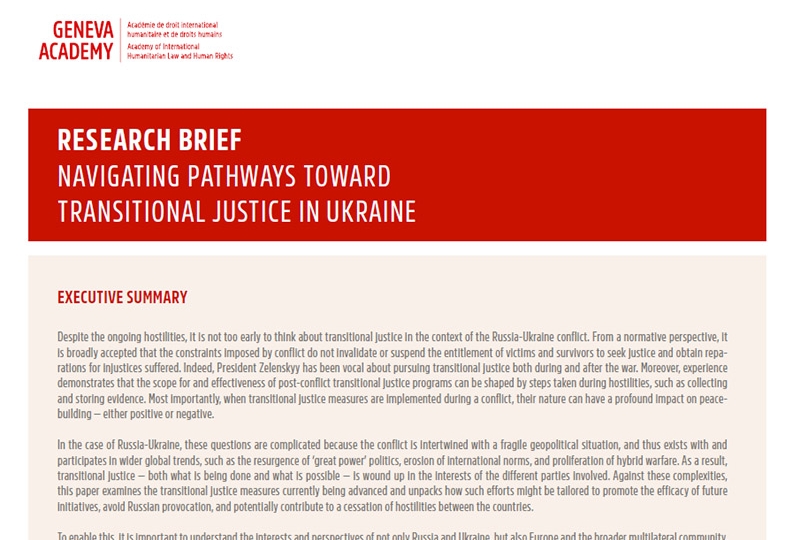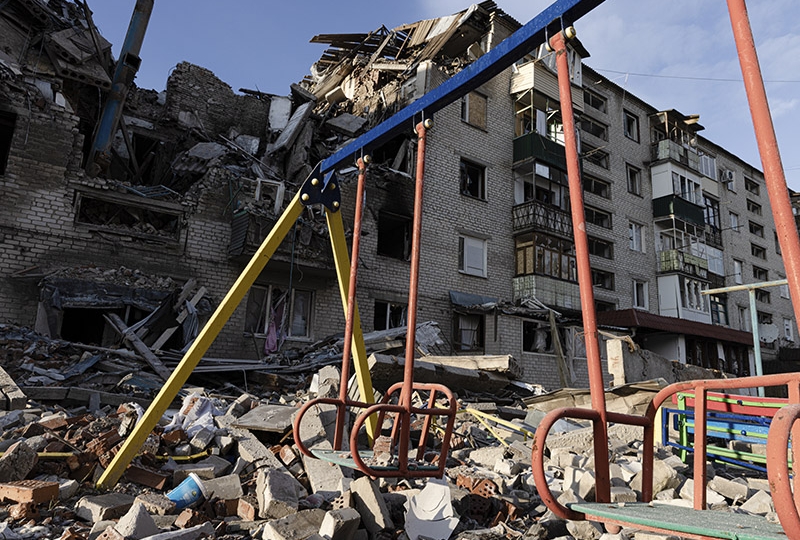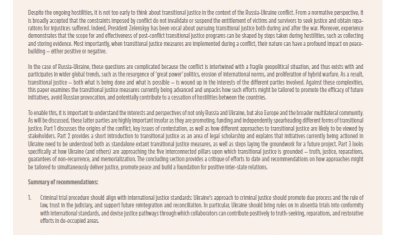7 October 2024
In our latest research brief, 'Navigating Pathways Toward Transitional Justice in Ukraine', Chhime Namdol Sherpa and Robin van der Lugt examine the justice initiatives currently unfolding in Ukraine and assess how these efforts can be adapted to lay the groundwork for a holistic transitional justice process, even as the Russo-Ukraine conflict persists.
Since 2014, Ukraine has faced a series of overlapping crises—ranging from the Maidan protests and civil unrest in Donbas to the annexation of Crimea, the armed conflict in Donbas and the full-scale invasion by Russia—within a complex post-Soviet socio-economic and political landscape. These challenges have resulted in a fragmented landscape of reforms and justice initiatives.
The current reality, characterized by Ukraine’s defense against an aggressor state, continues to restrict its ability to engage in a meaningful transitional justice process, which requires extensive self-scrutiny and space for open dialogue within society. Progress in this area appears contingent on the cessation of hostilities and establishing inter-state assurances of non-recurrence against aggression.
Despite these challenges, the authors note that both Ukraine and the international community are engaging with transitional justice, albeit with an overt focus on individual criminal responsibility. Initiatives such as documentation and preservation of evidence, domestic trials, and ICC arrest warrants represent critical components of an emerging transitional justice process amid conflict. Simultaneously, broader recovery efforts are taking place in Ukraine on a scale unprecedented during large-scale armed conflicts. The authors caution that these efforts must consider the potential drivers of post-conflict violence and acknowledge how wartime justice and recovery pursuits could impact future dynamics. They highlight the need for a cohesive strategy that integrates truth, justice, reparations, guarantees of non-recurrence, and collective memory —one that responds to the unique complexities of Ukraine’s situation.









